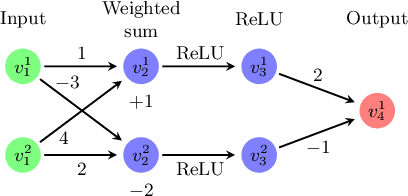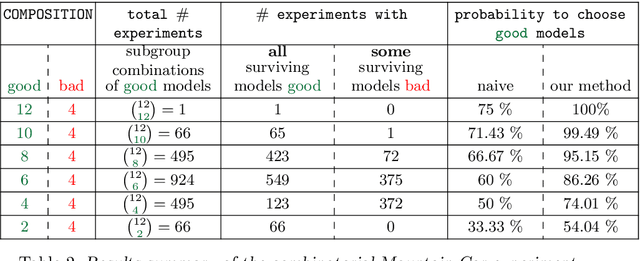Osher Maayan
Verifying the Generalization of Deep Learning to Out-of-Distribution Domains
Jun 04, 2024



Abstract:Deep neural networks (DNNs) play a crucial role in the field of machine learning, demonstrating state-of-the-art performance across various application domains. However, despite their success, DNN-based models may occasionally exhibit challenges with generalization, i.e., may fail to handle inputs that were not encountered during training. This limitation is a significant challenge when it comes to deploying deep learning for safety-critical tasks, as well as in real-world settings characterized by substantial variability. We introduce a novel approach for harnessing DNN verification technology to identify DNN-driven decision rules that exhibit robust generalization to previously unencountered input domains. Our method assesses generalization within an input domain by measuring the level of agreement between independently trained deep neural networks for inputs in this domain. We also efficiently realize our approach by using off-the-shelf DNN verification engines, and extensively evaluate it on both supervised and unsupervised DNN benchmarks, including a deep reinforcement learning (DRL) system for Internet congestion control -- demonstrating the applicability of our approach for real-world settings. Moreover, our research introduces a fresh objective for formal verification, offering the prospect of mitigating the challenges linked to deploying DNN-driven systems in real-world scenarios.
Verifying Generalization in Deep Learning
Feb 11, 2023



Abstract:Deep neural networks (DNNs) are the workhorses of deep learning, which constitutes the state of the art in numerous application domains. However, DNN-based decision rules are notoriously prone to poor generalization, i.e., may prove inadequate on inputs not encountered during training. This limitation poses a significant obstacle to employing deep learning for mission-critical tasks, and also in real-world environments that exhibit high variability. We propose a novel, verification-driven methodology for identifying DNN-based decision rules that generalize well to new input domains. Our approach quantifies generalization to an input domain by the extent to which decisions reached by independently trained DNNs are in agreement for inputs in this domain. We show how, by harnessing the power of DNN verification, our approach can be efficiently and effectively realized. We evaluate our verification-based approach on three deep reinforcement learning (DRL) benchmarks, including a system for real-world Internet congestion control. Our results establish the usefulness of our approach, and, in particular, its superiority over gradient-based methods. More broadly, our work puts forth a novel objective for formal verification, with the potential for mitigating the risks associated with deploying DNN-based systems in the wild.
 Add to Chrome
Add to Chrome Add to Firefox
Add to Firefox Add to Edge
Add to Edge